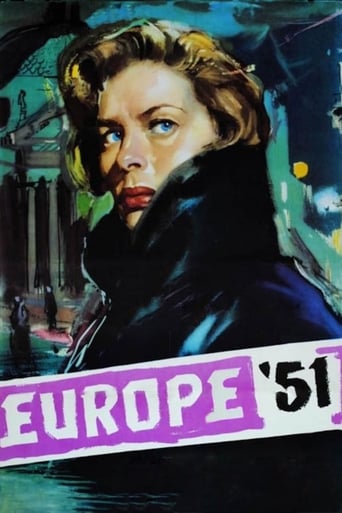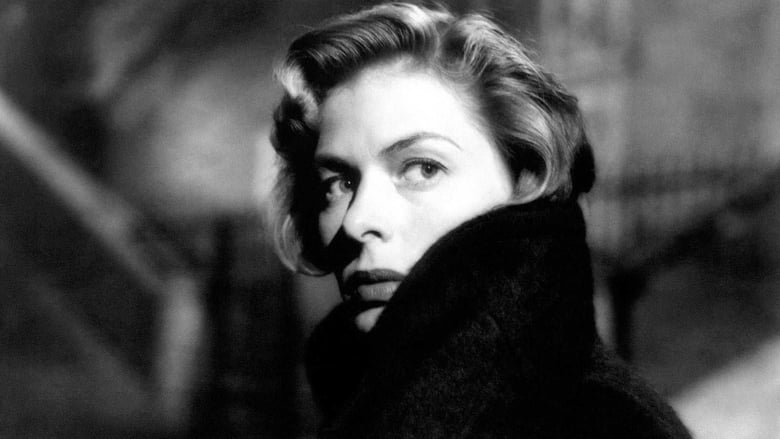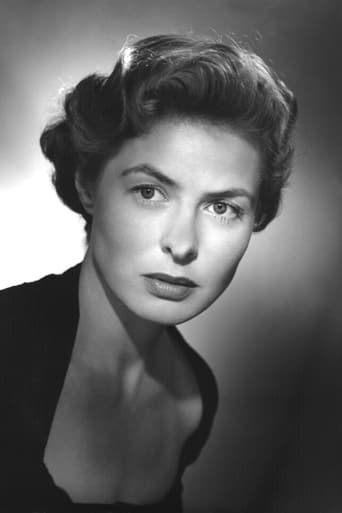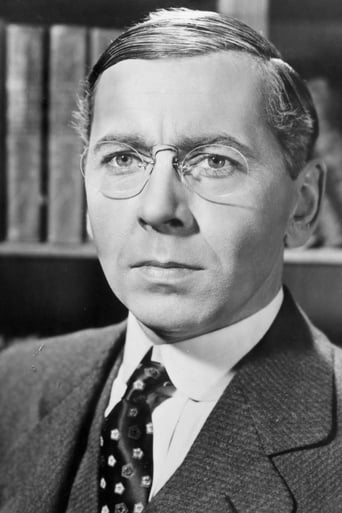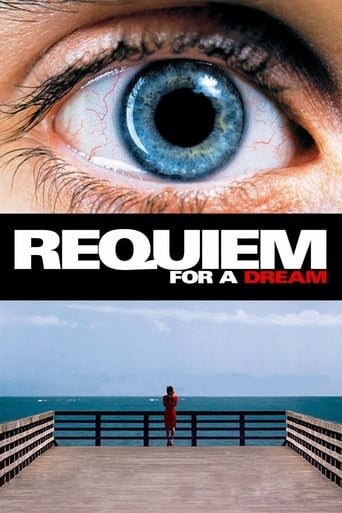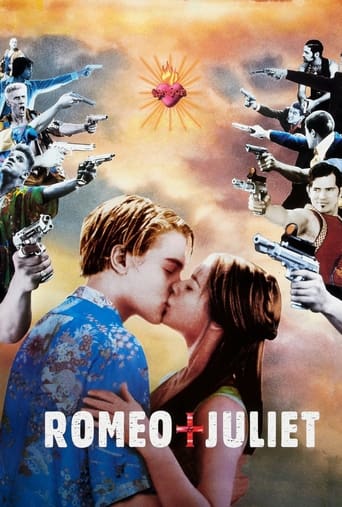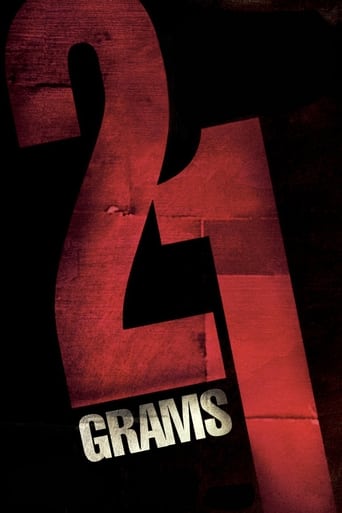Europe '51 (1952)
A wealthy, self-absorbed Rome socialite is racked by guilt over the death of her young son. As a way of dealing with her grief and finding meaning in her life, she decides to devote her time and money to the city’s poor and sick. Her newfound, single-minded activism leads to conflicts with her husband and questions about her sanity.
Watch Trailer
Cast


Similar titles
Reviews
Very well executed
One of my all time favorites.
A lot of fun.
Blistering performances.
This movie deals really with problems that have to do simultaneously with individual conscience and social questions in this world of ours. This is too deep a theme to be efficiently put in cinema and the movie resents this. However that beautiful woman and great actress called Ingrid Bergman takes us more or less well into these complicated moral, psychological and social entanglements. A rich woman becomes after her son's (still a child) suicide, possessed by the feeling that she has been very selfish till then and must now care about the poor people's situation and problems. She leaves her home and her husband and starts helping necessitous persons financially and personally. She ends by being considered mentally sick and is interned by her family in a psychiatric clinic. This is the contradiction between our society and the radical altruists an aspect that the movie treats only maybe a bit superficially concentrating itself more on the protagonist's psychological problem. Not a masterpiece but a good film anyway.
A Rossellini-Bergman Neo-realism drama takes place in the post-war Rome, Italy. Bergman plays Irene, an elegant socialite, the wife of a wealthy capitalist George Girard (Knox, in his cold, unimpressionable and unpleasant patina), together they have a young son Michele (Franchina), who feels constantly neglected by his parents, especially Irene, with whom he has spent the dreadful bombing days in England during WWII. Thus, on the occasion of one of the regular dinner gatherings hosted at home, Michele impulsively attempts a suicidal jump to grab his parents's attention, only later passes away from a blood clot.Irene lapses into guilt and depression after the bereavement, she grows apart from George, who insists they should shake off the mourning period together. With the help of a close friend Andrea Casatti (Giannini), Irene is introduced for the first time to the hardships of the poverty-stricken living in "the other side of Rome", which has eluded her thus far. In her conscience-driven commitment, Irene throws herself in helping out those who are in urgent need: defraying the medicine expense of a deprived family to save a young boy's life; finding a job and standing in for a poor but spirited woman (Masina), who has six children to tend (three are her own kids, the rest are orphans); taking care of an ailing prostitute Ines (Pellati) in her last days. She transforms herself into a modern-day saint.But a saint always invites persecution in an unjust world, George, holding his own grudge and gnawing jealousy (he accuses Irene of having an affair with Andrea) against her, cannot stand her constant absence in the household and refuses to take her side with respect to her newly occupied activities. When she conducts a misdemeanour to help a young criminal to evade arrest, George and his lawyer conspire to put her in a mental institution, thinking that a spell of solitude is what she needs the most to resume her social and familial duty as a wife of an important businessman. Irene doesn't defy the ungrounded internment, instead, it strengthens her unerring advocacy of a pure conception of altruism, an act superior of any religious beliefs or political slants. In the final stage of the film, she regains her peace and abides by her conviction in front the review board, who then collectively decides that she should be locked up there permanently, only those who have been aided by her affectionately call her their patron saint, her martyrdom is aptly consummated.Bergman's performance is faultless, albeit the fact that her dialog was completely dubbed in post- production, it is a performance demands immeasurable investment from a thespian's emotional gamut (most of the time, those heart-rending moments are obtrusively intensified by Renzo Rossellini's highfalutin score), persistently expressive and emotive, her saintly appearance has taken shape through all the ordeal she experiences or witnesses, only Bergman can succeed in eliciting such powerful empathy without telegraphing an air of contrivance, Irene Girard is one of the absolute highlights in her prestigious career.In the end of the day, what can new audience say about the central story? Is Irene's self-inflicted sacrifice is a truly commendable virtue? Or, in a more pragmatic stance, her incarceration basically blocks herself from practicing the noble cause to assist the impoverished, she might acquire the tranquility she particularly yearns for after the loss of her son, yet, if that is the case, it contradicts the whole concept of her irreproachable devotion of altruism, the vestige of selfishness betrays from her final gesture, it seems, in order to find the ultimate peace in herself, she barters it with the actual good deeds she would have done if she chooses to accept her old role as a stopgap. With her wealth and wisdom, there are many ways she can continue her philanthropic endeavour, if she really puts her mind into it. That's the divide between then and now, a lofty, masochistic crucifixion is not fashionable and favourable any more, especially there is a more sensible alternative one can choose, pragmatism prevails in today's standpoint.
Maybe it's the dubbing, or maybe it's the endless scenes of people crying, moaning or otherwise carrying on, but I found Europa '51 to be one of the most overwrought (and therefore annoying) films I've ever seen. The film starts out promisingly if familiarly, as mom Ingrid Bergman is too busy to spend time with her spoiled brat of a son (Sandro Franchina). Whilst mummy and daddy (bland Alexander Knox) entertain their guests at a dinner party, the youngster tries to kill himself, setting in motion a life changing series of events that find Bergman spending time showering compassion on the poor and needy. Spurred on by Communist newspaper editor Andrea (Ettore Giannini), she soon spends more time with the downtrodden than she does with her husband, who soon locks her up in an insane asylum for her troubles. Bergman plays the saint role to the hilt, echoing her 1948 role as Joan of Arc, and Rossellini does a fantastic job of lighting and filming her to best effect. Unfortunately, the script pounds its point home with ham-fisted subtlety, as Andrea and Mom take turns declaiming Marxist and Christian platitudes. By the final tear soaked scene, I had had more than my fill of these tiresome characters. A real step down for Rossellini as he stepped away from neo-realism and further embraced the mythical and mystical themes of 1950's Flowers of St. Francis.
Ingrid Bergman and director Roberto Rossellini teamed for this fascinating (if long) look at an expatriate American woman in post-war Italy, the death of her son, and her movement toward "good works." Complex and multi-layered story has moments of brilliance and incorporates dashes of Communism, religious fervor, social work, love, and the frivolity of the rich all set against the "new Italy" of the early 1950s. Bergman looks great and gives a stunning performance, even if it reeks a little of Saint Joan. Alexander Knox (best known for Wilson and The Sea Wolf) is good as the cold-fish husband, and Giulietta Masina (La Strada) has a nice supporting role as an earth mother who gathers up stray kids. The rest of the cast was unknown to me. Opening sequences of social butterfly Bergman ignoring her needy son to entertain guests are quite good, as are various slum and factory scenes. The ending is quite disturbing and way too long.Certainly a better film overall than Rossellini's Stromboli, and even though Bergman is good (as always) one can't help feel that Anna Magnani might have been a better "type" for the role, especially with Magnani's penchant for theatrics.Anyway, it's an interesting and powerful study of a woman's metamorphosis, but to what we are never sure. Certainly worth a look.

